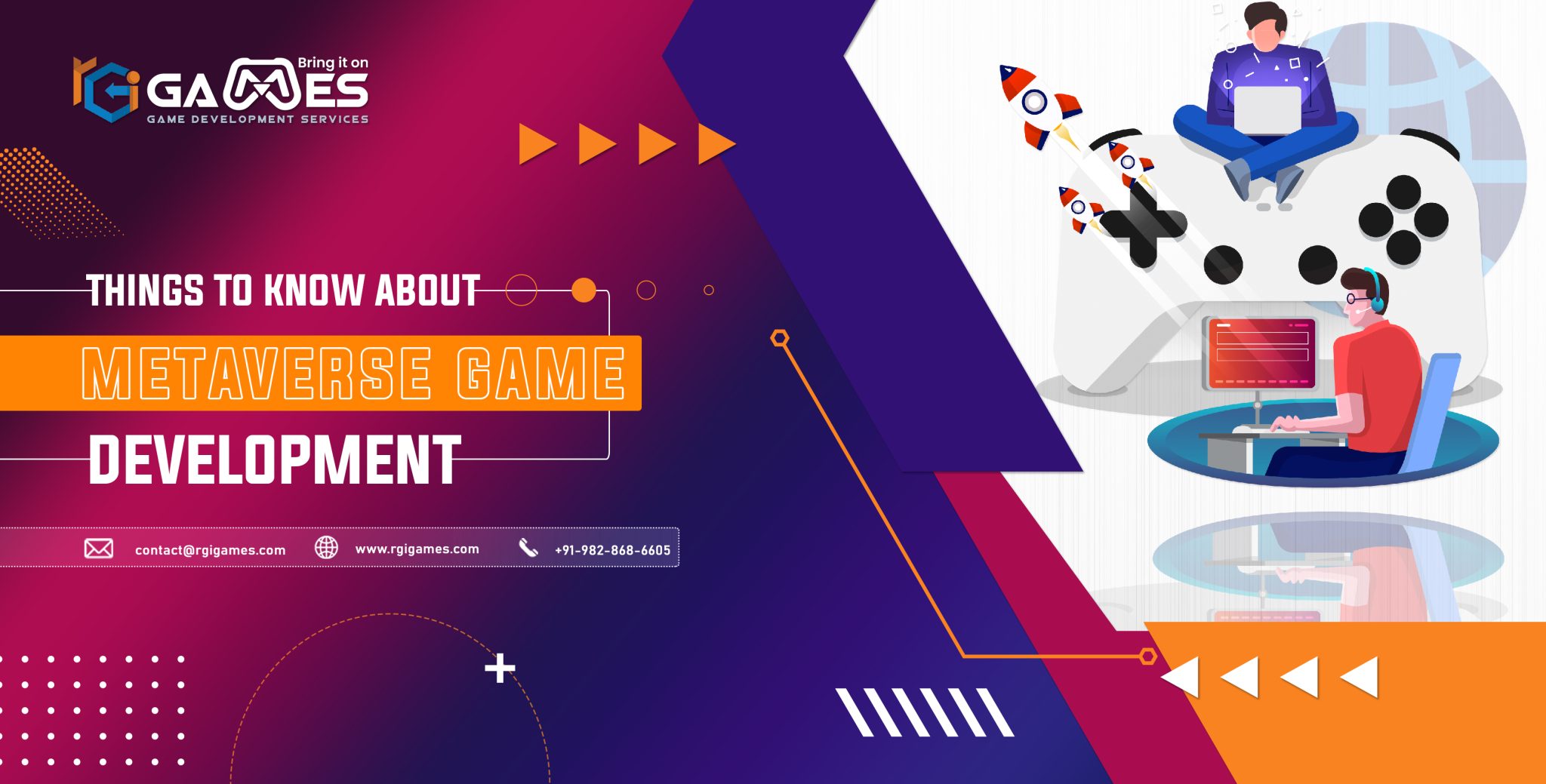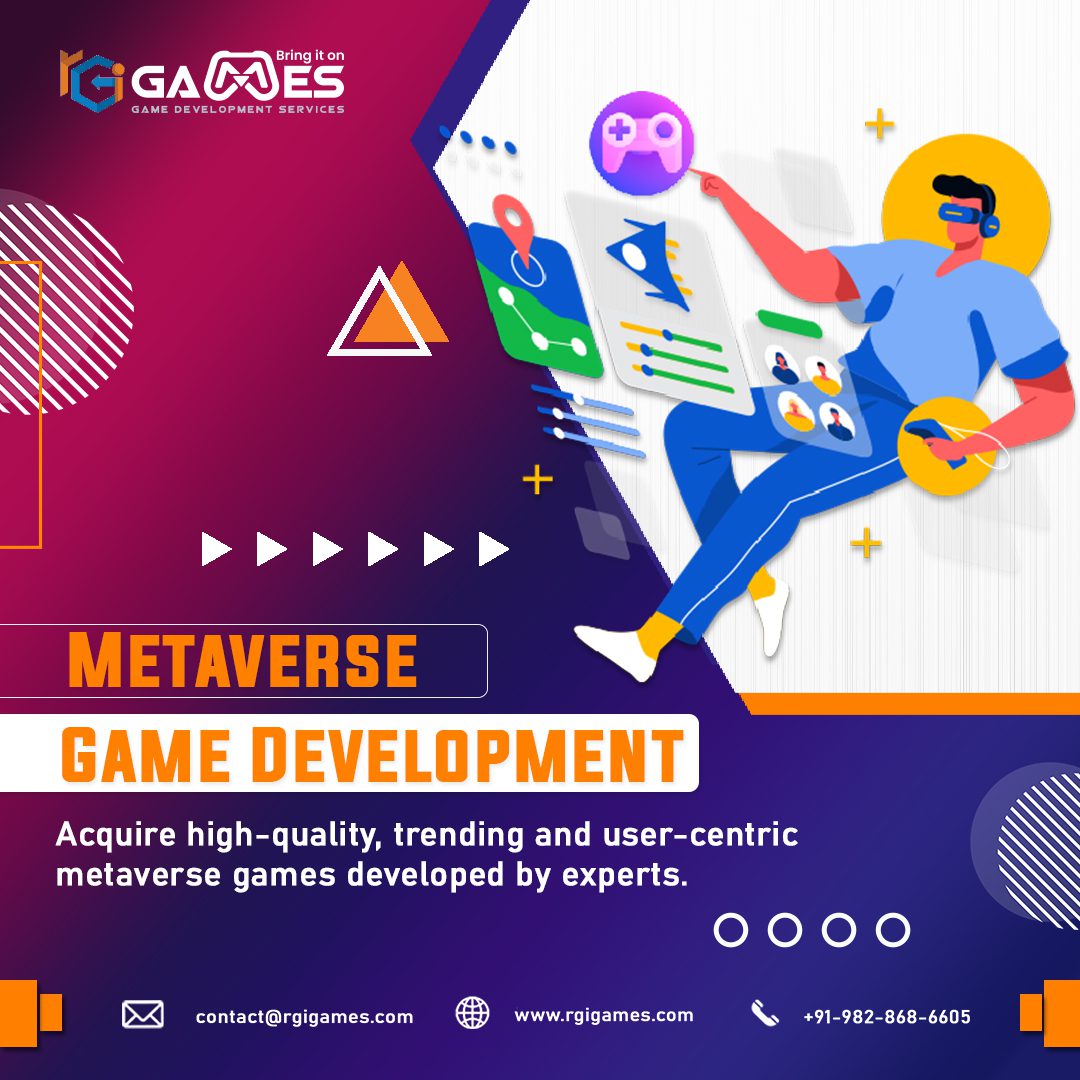7 Most fascinating things to know about Metaverse Game Development
The term “metaverse” has become quite popular in recent years, thanks to the growth of virtual reality (VR) and augmented reality (AR) technologies. The concept of a metaverse is essentially a virtual universe, where users can interact with each other in real-time and engage in various activities such as gaming, socializing, shopping, and more.
In this article, we will explore the things to know about Metaverse game development and the latest market stats.
WHAT IS A METAVERSE GAME?
A Metaverse game takes place in a virtual world, where players can interact with the environment and each other in real time. These games are typically massively multiplayer online games (MMOs), where players can create their avatars and participate in a wide range of activities, from exploring new worlds to battling monsters or other players. The concept of the Metaverse was first introduced in Neal Stephenson’s novel Snow Crash in 1992, and it has been a popular topic in science fiction ever since.
Metaverse games offer a unique experience for players, as they can create their own stories and adventures in a shared space. Players can explore the world, meet other players, and engage in various activities, such as building, crafting, and combat. Metaverse games can be either persistent or non-persistent, meaning that the world may stay the same or change over time.

THINGS TO KNOW ABOUT METAVERSE GAME DEVELOPMENT
Metaverse games are virtual worlds that are fully immersive and interactive. They offer players a chance to engage with a vast, expansive world where they can create, explore, and interact with others in real time.
Metaverse game development has become increasingly popular among developers in recent years due to its potential for creating highly engaging and monetizable games. But before entering the metaverse, here are a few things that you needed to know.
01. Technical Requirements
Metaverse game development requires a high level of technical expertise, as these games are typically very complex. They require large amounts of server space, high-performance graphics, and complex physics engines. Developers must also be proficient in various programming languages like C++, Java, and Python.
02. Storytelling
Metaverse games require a strong focus on storytelling, as players are looking for immersive experiences that allow them to create their own stories and adventures. Developers must create a rich and engaging world that provides players with a sense of exploration and discovery.
03. Player Interaction
04. Monetization Strategies
Metaverse games can be monetized in various ways, such as through subscriptions, microtransactions, and advertising.
- In-game purchases or microtransactions are the most common monetization strategy, with players able to purchase virtual items such as clothing, weapons, and other accessories.
- Advertising is another popular monetization strategy, where advertisers get an opportunity to reach a highly engaged audience.
- Subscription-based models are also gaining popularity, with players paying a monthly fee to access premium content and features.
Developers must also consider other monetization options and choose the ones most suitable for their game and audience.
05. Challenges of Metaverse Game Development
Metaverse game development presents several challenges, including ensuring the scalability of the virtual world and maintaining a balance between social interaction and gameplay. Developers also need to consider the safety and privacy of users, ensuring that their personal information is protected and that they are not exposed to inappropriate content.
06. Blockchain technology
Blockchain technology is being used to create decentralized metaverse games, where players can truly own their in-game assets and have full control over them. This creates a new revenue stream for developers and allows players to earn real-world money by participating in the game’s economy.
07. Metaverse Market Worth
The Metaverse gaming market is expected to grow significantly in the coming years. According to a report by MarketsandMarkets, the global Metaverse market size is projected to reach USD 280.90 billion by 2025, up from USD 46.60 billion in 2020, at a CAGR of 43.8% during the forecast period.
METAVERSE GAME DEVELOPMENT TOOLS
To develop a Metaverse game, developers need to use a variety of tools, including game engines, virtual world creation tools, and software development kits (SDKs). Some of the popular game engines used in Metaverse game development include Unity, Unreal Engine, and CryEngine.
Virtual world creation tools, such as Second Life and Roblox, allow developers to create a virtual world with different environments, objects, and interactive elements. SDKs like Oculus VR and SteamVR enable developers to create immersive virtual reality experiences that can be played using specialized hardware.
Virtual world creation tools, such as Second Life and Roblox, allow developers to create a virtual world with different environments, objects, and interactive elements. SDKs like Oculus VR and SteamVR enable developers to create immersive virtual reality experiences that can be played using specialized hardware.

CONCLUSION
Metaverse game development is an exciting and growing field that offers a new way for people to engage with each other and the digital world. As VR and AR technologies continue to advance, we can expect to see even more innovative Metaverse games that blur the lines between reality and virtuality.



 rgisales
rgisales



